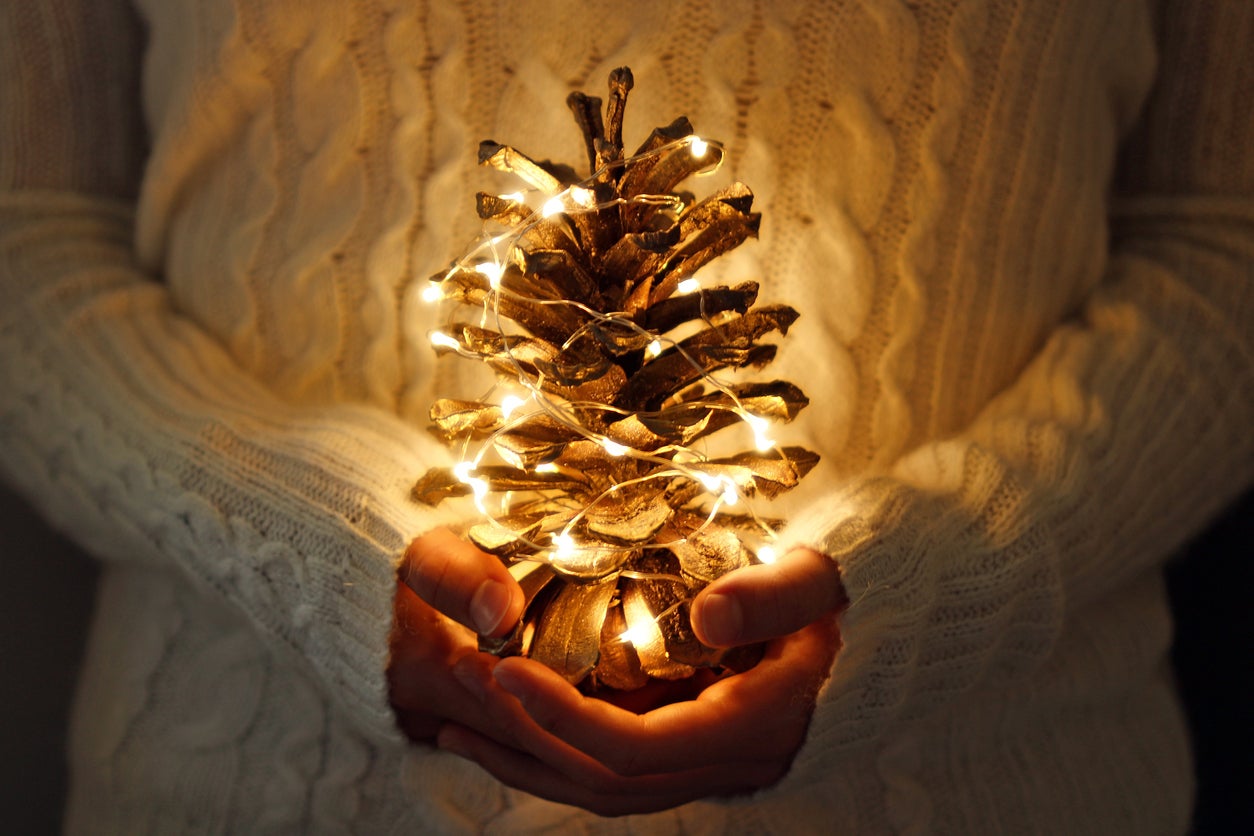As a Muslim, I have already experienced two ‘virtual’ Eids – you have nothing to fear this Christmas
The collective spirit of Ramadan and Eid didn’t feel like it was there at first but many people have since told me that the 2020 celebrations were their most meaningful and special yet


A remote Christmas is not what anyone wanted. As a Muslim, I’ve already gone through a remote Ramadan, and two remote Eids. I know it’s tough.
Normally, I would break my fast with several family members at home or hundreds of fellow worshippers at the mosque; in 2020, I was in a bubble with my 61-year-old, diabetic mother. A usual Eid would mean meals out and halal parties; this year, it meant a takeaway and a Zoom call.
The collective spirit of Ramadan and Eid, like so many other religious festivals this year, didn’t feel like it was there – at first.
But we adapted. I can tell you from experience: virtual festivities are nothing to be worried about. What they lack in physical closeness, they more than make up for in spiritual connectedness. I’ve lost count of the number of people who told me that Ramadan and Eid in 2020 were their most meaningful and special yet.
It’s important we all strive to adapt to virtual festivals. At times of crisis, we need a sense of community more than ever. That’s what makes it particularly painful for us to be robbed of the physical spaces which make that community tick.
That is especially true with faith communities; history shows us, however, that crisis does not deter faith. After the 9/11 attacks, New York’s churches, mosques and synagogues got busier. The same happened with online religious services in the UK in the weeks after lockdown started. Religion helps us to find meaning in times of hardship, and community in times of isolation.
The Muslim community was the first to see how spirituality and solidarity can be maintained, or even strengthened, through technology. Ramadan (followed by Eid) fell shortly after lockdown began in the UK. And just as work, play, and education have all shifted online, faith communities did, too.
Open Iftar enabled thousands of Muslims across the globe to break their fast together, many of whom would have never met in the project’s usual physical location in central London. Positive experiences like these should reassure those who may be planning a Christmas dinner over Zoom, or joining in with a midnight mass on YouTube.
I’ve spent much of this year discovering a new generation of social media imams who are presenting faith in a very “2020” way, and I’m sure the same is happening in other communities. Although nothing can compare to an in-person iftar or Eid, where you feel united with friends and strangers alike, doing it on Zoom has forced me to think about what really unites us – a shared spiritual and emotional experience, not just a shared carpet.
But the institutions that make these things possible – whether they are physical or virtual – have been hit financially because of Covid. Again, Muslims were first to experience this, since Ramadan (which fell during lockdown) is a key time for charity, often given to the local mosque in person or directly to a good cause. British Muslims donate £123 each in Ramadan, almost three times the average monthly UK charitable donation. The closure of mosques at this “peak time” for donations left many in financial difficulty. This was particularly concerning as mosques and other places of worship played a crucial role during lockdown, acting as morgues, hospices and food distribution centres.
Places of worship from other faith communities have been similarly affected, with 9 per cent of Church of England parish income, for example, coming from cash in-person donations.
So Penny Appeal, the charity I founded, supported various churches, mosques and other places of worship and community gathering. This must continue, even as these institutions become increasingly virtual.
At the same time, we also embraced digital giving – out of necessity, yes, but also as a way to give donors more convenience and choice about where their money goes. This choice is just as important as the convenience of online giving, and I hope that more and more charities will embrace it, so they can survive and thrive.
This is particularly important to younger people who faith communities need to connect with if they are going to continue to be a lifeline to so many in future. It is also those younger people who can lead our communities into a brave new world of online existence.
There is nothing like physical proximity to bring hearts and minds together. One day, we will gather again shoulder to shoulder on our pews and in our mosques. Until then, going digital can keep the faith alive – and provide a platform for the donations that will protect the most vulnerable through the difficult months ahead.
Adeem Younis is founder and trustee of Penny Appeal



Bookmark popover
Removed from bookmarks